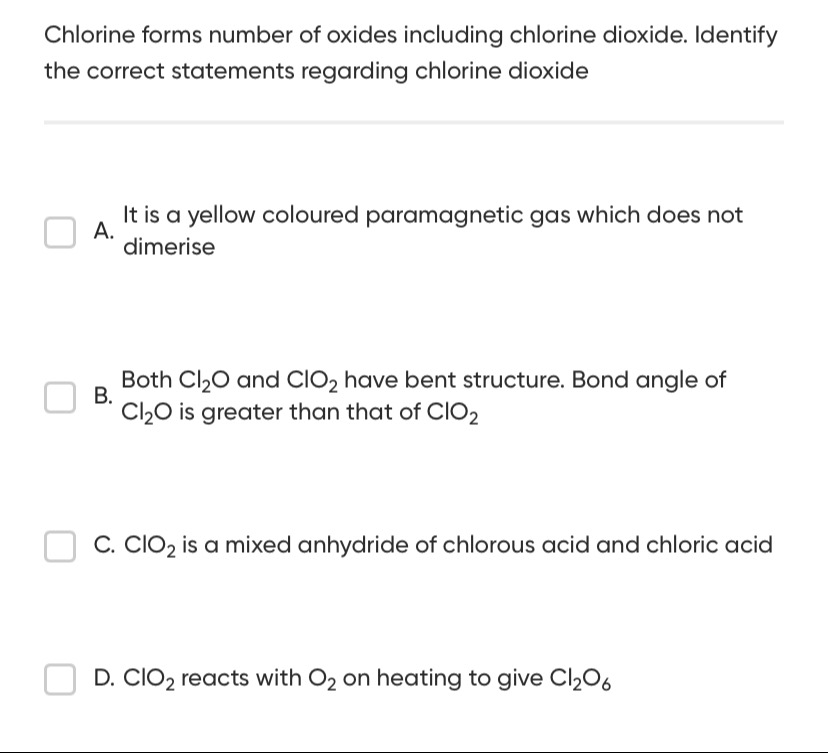Question
Question: Chlorine forms number of oxides including chlorine dioxide. Identify the correct statements regardin...
Chlorine forms number of oxides including chlorine dioxide. Identify the correct statements regarding chlorine dioxide

It is a yellow coloured paramagnetic gas which does not dimerise
Both Cl₂O and ClO₂ have bent structure. Bond angle of Cl₂O is greater than that of ClO₂
ClO₂ is a mixed anhydride of chlorous acid and chloric acid
ClO₂ reacts with O₂ on heating to give Cl₂O₆
A, C
Solution
Let's analyze each statement regarding chlorine dioxide (ClO₂):
A. It is a yellow coloured paramagnetic gas which does not dimerise
- Color: Chlorine dioxide is a yellowish-green or yellow-brown gas.
- Paramagnetic: ClO₂ has 19 valence electrons (7 from Cl and 12 from 2 O atoms). Having an odd number of valence electrons makes it paramagnetic.
- Dimerisation: ClO₂ does not dimerize readily, unlike NO₂.
Therefore, statement A is correct.
B. Both Cl₂O and ClO₂ have bent structure. Bond angle of Cl₂O is greater than that of ClO₂
- Structure of Cl₂O: It has a bent structure with a bond angle of approximately 110.9°.
- Structure of ClO₂: It has a bent structure with a bond angle of approximately 117.6°.
The bond angle of Cl₂O is less than that of ClO₂. Therefore, statement B is incorrect.
C. ClO₂ is a mixed anhydride of chlorous acid and chloric acid
-
ClO₂ reacts with water to form both chlorous acid (HClO₂) and chloric acid (HClO₃):
2ClO2+H2O→HClO2+HClO3
Therefore, statement C is correct.
D. ClO₂ reacts with O₂ on heating to give Cl₂O₆
-
ClO₂ decomposes upon heating, rather than reacting with O₂:
2ClO2heatCl2+2O2
Therefore, statement D is incorrect.
Conclusion: Statements A and C are correct.
